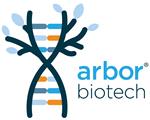TMCnet News
Arbor Biotechnologies Presents Data Supporting Clinical Development of ABO-101 and Robust Potential of Platform to Enable Therapeutic Programs at the American Society of Gene and Cell Therapy (ASGCT) 27th Annual Meeting
CAMBRIDGE, Mass., May 09, 2024 (GLOBE NEWSWIRE) -- Arbor Biotechnologies®, a biotechnology company discovering and developing the next generation of genetic medicines, today presents preclinical data demonstrating the potential of ABO-101, its novel gene editing therapeutic designed to address primary hyperoxaluria type 1 (PH1), as well as its broader discovery capabilities and their application to enable novel gene editing therapeutics in a suite of presentations at the 2024 American Society of Gene and Cell Therapy (ASGCT) 27th Annual Meeting in Baltimore, Maryland. “At Arbor, we are building upon the potential of CRISPR-Cas approaches by leveraging our proprietary nuclease discovery and development platform to enable efficient identification and optimization of novel gene editing tools for a focus on translation of these tools into therapeutics,” said Devyn Smith, Ph.D., Chief Executive Officer of Arbor. “This approach has fueled our robust pipeline of genetic medicines which address a range of liver and CNS indications, including PH1 and ALS. The data presented at ASGCT reinforce the vast potential of our approach and demonstrate the tremendous progress we have made advancing our platform and programs toward the clinic.” In an oral presentation, Arbor shares in vivo data that highlights the therapeutic potential of its lead program, ABO-101, to address PH1. The data show highly specific targeting of the HAO1 gene in the liver and preservation of genomic integrity upon editing. The results further demonstrate efficient in vivo editing of HAO1 in a preclinical model of PH1, which resulted in a corresponding, therapeutically relevant reduction in urinary oxalate. ABO-101 was well tolerated in nonhuman primates (NHPs) at multiple doses. NHP data confirmed the efficacy and pharmacology of ABO-101, with efficient editing of HAO1 yielding reduced glycolate oxidase activity and increased serum glycolate. Together, this strong preclinical data package and the ongoing IND-enabling studies support continued advncement of ABO-101 toward clinical evaluation. Preclinical data shared in a poster presentation confirm that novel type V nucleases, discovered and optimized using Arbor’s discovery platform, can prevent aberrant splicing of STMN2, providing preclinical evidence of editing in CNS cells. In vitro studies in cellular models and human motor neurons and in vivo studies in STMN2 transgenic mice showed that STMN2 motif disruption increased full-length STMN2 mRNA and decreased mRNA levels for the aberrantly spliced novel exon of STMN2 (Exon 2A). These results show that leveraging a novel nuclease capable of achieving targeted deletions can reverse aberrant splicing of STMN2 and demonstrate the therapeutic potential for an effective gene editing approach for sporadic ALS in patients with TDP43 proteinopathy. The company also highlights the potential of its end-to-end nuclease discovery and optimization platform in a third presentation outlining the identification of a unique, compact type V nuclease. Arbor used structure-guided design to enhance activity and specificity of a compact CRISPR-Cas type V-L system identified via metagenomic search. The resulting nuclease, ABR-004, demonstrated the ability to achieve potent, therapeutically relevant silencing of PCSK9 in mice and non-human primates, signaling opportunities for future development for broader therapeutic applications. The data demonstrate the feasibility of applying Arbor’s discovery and targeted nuclease optimization capabilities to develop new gene editing tools with the potential to power the next generation of genomic medicines. David Cheng, Chief Technology Officer at Arbor, also participated in the scientific symposium, delivering a presentation on the significance and future of AI in the discovery and development of new genomic medicines as part of a session titled The Impact of Artificial Intelligence (AI) on CGT. Details for the presentations are as follows: Presentation Title: Generative AI Progress and Applications for Cell and Gene Therapies Oral Presentation Title: Development Of ABO-101, A Novel Gene Editing Therapy For Primary Hyperoxaluria Type 1 Abstract Number: 165 Oral Presentation Title: Identification and Engineering of ABR-004, a Compact, High-fidelity Nuclease for Therapeutic Gene Editing Abstract Number: 150 Poster Title: Disruption of Aberrant Splicing of STMN2 by Gene Editing with a Type V CRISPR-Cas Enzyme as a Potential Treatment for ALS Abstract Number: 1598 About Arbor Biotechnologies® Media Contact:

|

